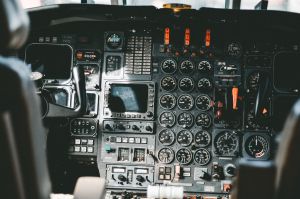Embraer and the German Aerospace Center (Deutsches Zentrum für Luft-und Raumfahrt; DLR) have formalized a partnership aimed at advancing aviation technology. In a joint announcement, the two entities revealed the signing of a Memorandum of Understanding (MoU) to facilitate precompetitive technology research and development initiatives.
The collaboration entails an exploration of potential cooperative efforts encompassing a diverse array of activities, including Aircraft Design, Flight Systems, Flight Physics, System Architectures, Flight Tests, Wind Tunnel Experiments, Structures and Materials, and Security.
Maurílio Albanese Novaes Júnior, the Head of Research & Technology Development at Embraer, expressed enthusiasm about the extended partnership, highlighting the company's enduring relationship with DLR. He emphasized that this agreement marks a pivotal stride in their technological journey toward a sustainable aviation future, achieved in close cooperation with leading global research institutions.
Prof. Anke Kaysser-Pyzalla, Chair of the DLR Executive Board, echoed this sentiment, underlining the significance of intensified collaborative activities. She stressed the essential role of international cooperation in achieving the shared objective of environmentally responsible aviation. Prof. Kaysser-Pyzalla explained that together with their partner, Embraer, they will tackle various aviation-related challenges, including aspects of aerodynamics and flight physics, as well as the conduct of wind tunnel experiments and flight tests.
The collaboration between DLR and Embraer dates back to 2001, with both entities having previously collaborated on distinct projects. Their joint efforts have yielded significant results in various fields, including research into ice formation on aircraft, aerodynamics modeling, and aeroelasticity. In 2017, the partnership took on a deeper focus, centering on sustainability initiatives that address concerns like noise reduction and minimizing aviation's impact on the climate.
Lilium, a company based in Germany, has successfully secured an additional $250 million in funding for its electric vertical take-off and landing aircraft (eVTOL), bringing their total fundraising efforts to nearly $1.2 billion. The eVTOL being developed by Lilium is notably advanced compared to other air taxi designs currently in progress in Europe. It boasts a five-seater configuration and features a rotating wing design. The platform conducted its maiden test flight back in 2019, and currently, a 40% scale model is undergoing testing in a European wind tunnel.
The development of this innovative aircraft has necessitated collaborations for cutting-edge technology. Lilium has partnered with Customcells in Germany to create new silicon battery designs, and they've also incorporated new electric motors from Schuebeler Technologies. Furthermore, gaining approval for this entirely new class of aircraft has presented formidable challenges.
In March 2021, Lilium made its shares available on the Nasdaq stock market. According to a recent U.S. filing, Chinese investor Tencent pre-funded the acquisition of $100 million worth of shares and committed to pre-fund an additional $75 million in shares, contingent upon Lilium securing a matching $75 million. As of now, the company holds $157.5 million in cash reserves, and this new funding is expected to cover a significant portion of the capital required to achieve the first manned flight of the type-conforming aircraft, scheduled for the second half of 2024. Lilium anticipates receiving substantial pre-delivery payments (PDPs), which will assist in funding their future capital needs.
Klaus Roewe, CEO of Lilium, expressed enthusiasm about this financing round, emphasizing its significance in their mission to revolutionize the aviation industry. He mentioned that they are engaged in constructive discussions with both existing and potential new investors and expect to provide further updates soon.
Presently, Lilium is conducting wind tunnel tests with a 40% scale model of their aircraft at the German-Dutch Wind Tunnels (DNW) facility in Marknesse, Netherlands. This model includes functional engines and flap actuators, with each flap being remotely actuated and equipped with electric ducted fans, all built to scale by Schuebeler. The wind tunnel tests are designed to gather comprehensive aerodynamic data, validating their flight physics and performance predictions across the complete aircraft flight envelope, from hover to cruise.
The scale model adheres to the latest Lilium Jet design by TGR-E, a provider of high-end manufacturing solutions, with support from aerospace design specialists IBK-Innovation. The DNW wind tunnels have a history of contributing to the development of major aircraft, including Airbus models and Embraer's E-jet family, making them a crucial resource for Lilium's ambitious aircraft program.
Alastair McIntosh, Chief Technology Officer at Lilium, expressed excitement about this crucial step in their aircraft program. He highlighted the impressive cooperation with DNW, the support provided by TGR-E and IBK, and the significance of generating extensive aerodynamics data to enhance confidence in their design tools as they prepare for the final assembly stage later this year.






